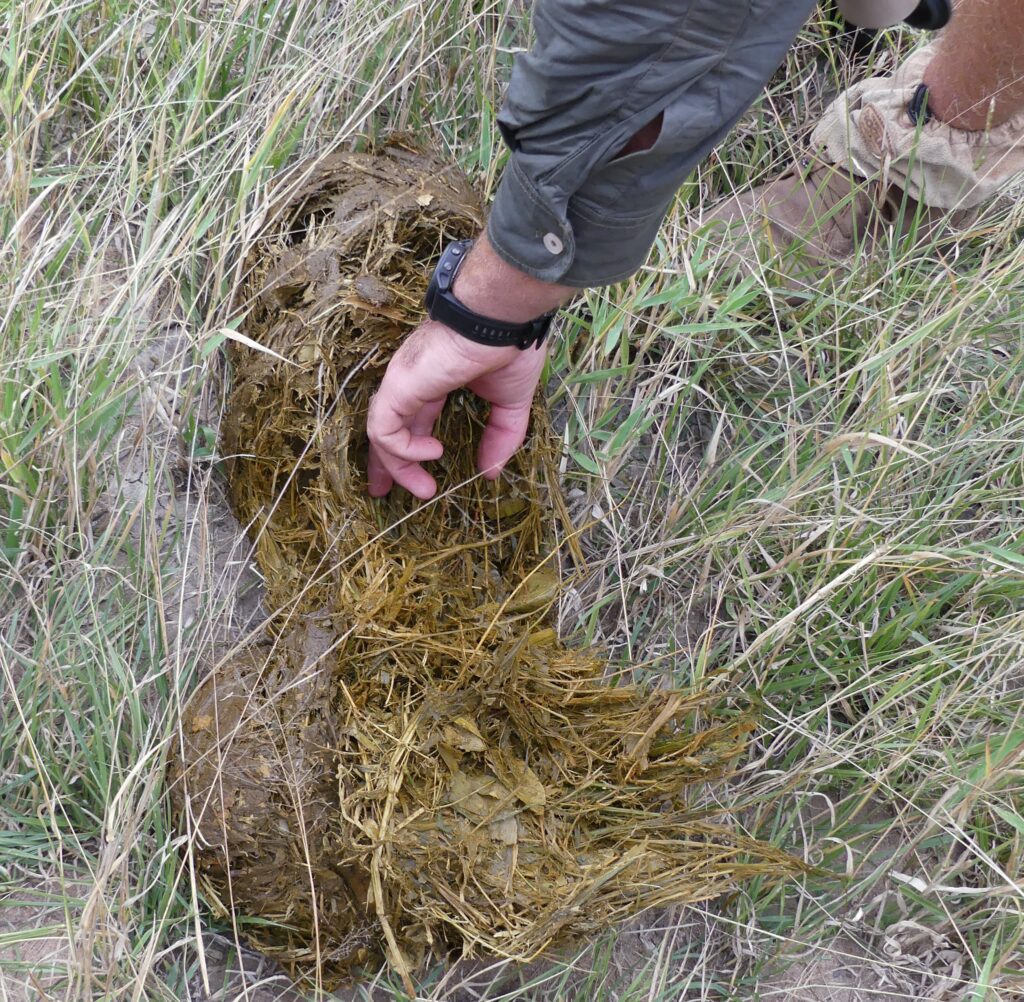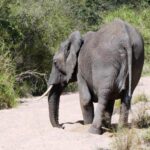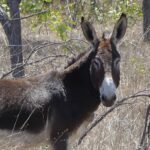Elephants are a kind of dung-producing machines

In the wild, African elephants (Loxodonta africana) are foraging about 150 – 180 kg of plant material per day. And they also drink about 350 liters of water. Consequently, they excrete about 10 – 12 times daily, with a total weight of all these excretions of about 100 kg. And – due to their specific digestive system – their body only utilizes about 40% of the ingested food mass. The rest is turned out again. And this fresh elephant dung contains about 8% of moisture. This dung also contains elevated levels of nitrogen, phosphorous, and potassium. It has a bacterial load similar to that of other herbivores. If somebody is interested in all the current uses of elephant dung, they can be read here.
How to drink water from elephant dung?

At a certain Nature Guide training facility in South Africa, it is common practice for the students to be trained for emergencies. There, they also have to take some sips of elephant dung water to learn this practice and get an idea of the taste of such water. During all these times, no case of bad stomach or any other health consequences was observed by students.

Both students and instructors take a handful of fresh elephant dung and squeeze it over the inverted thumb directly into the mouth. The taste of this water is quite bitter, and it smells of fresh hay, but it is otherwise quite drinkable. However, it should be avoided to trickle some of this water outside the mouth onto exposed skin or clothing because the smell will linger there for some time. I, therefore, would propose to squeeze the elephant dung over a container and drink from the container.
An instructor told me that ‘Sangomas’ (traditional African healers) use elephant dung for healing. Elephants forage on various plants, and many of the plant ingredients are still present in these dung balls, which act as medicines.
Lessons learned on drinking water from elephant dung
- In Big-5 areas in Southern Africa, elephant dung is quite omnipresent.
- Fresh dung droppings will be found concentrated at elephant paths and water holes.
- Squeezing fresh dung material produces a surprising amount of dung water.
- Elephant dung water tastes bitter and is full of bacteria but does not harm the person drinking it.





